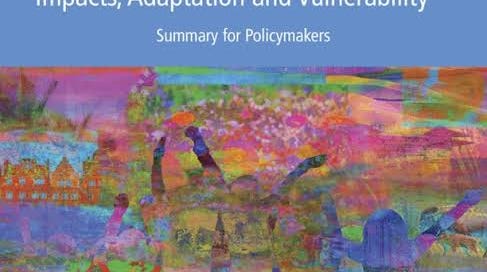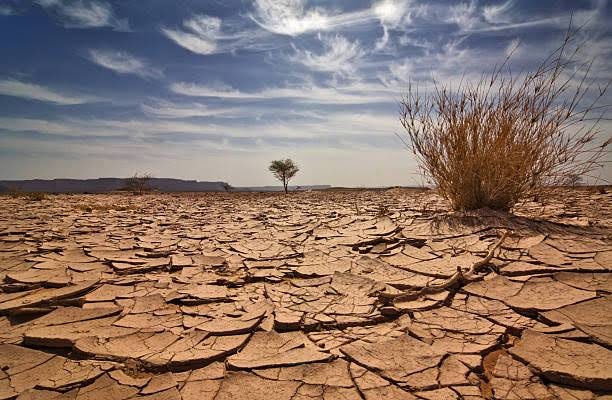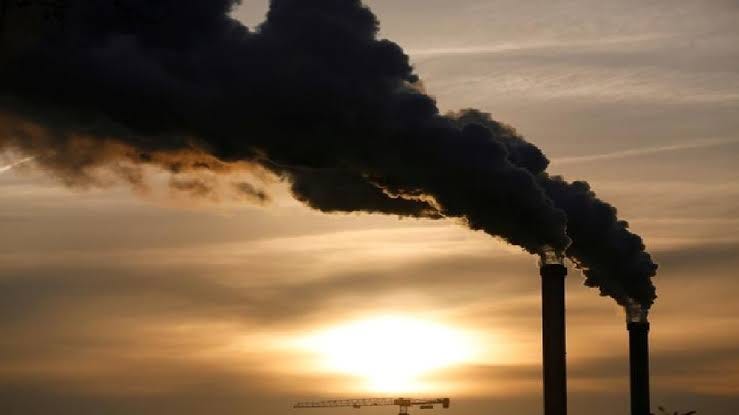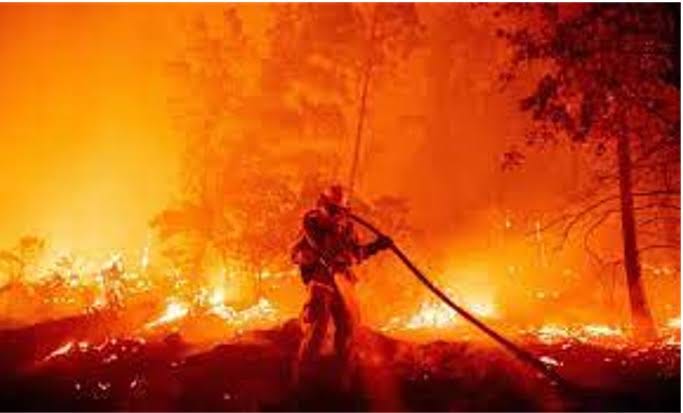IPCC:Fossil Fuel is the Problem with Climate Change
The IPCC report continues to attract a lot of attentions. How does it relate to coastal areas, not only in Nigeria but all over the world?
The ocean level would rise. As it rises, it would swallow the mega-cities by the coastline. It would swallow the mansions in them, it doesn’t matter how majestic or elaborate. The ocean would swallow business districts where million-dollar transactions take place on a daily business, along with the signboards and banners, together with their car parks and restaurants.
Despite the advance of the sea, drought would become a common occurrence in the hinterland. Not just the drought we’re used to, but a prolonged drought. The IPCC report for 2021 called the kind of drought hydrological droughts, or a prolonged drought. It will cause a long and widespread deficit in naturally available water supply, the kind that creates multiple stresses across ecosystems, a painful and disturbing experience, a prolonged drought.
Despite the drought, monsoon precipitation would take place in the coastal areas. Through the widespread precipitation, flood would become numerous. As the ocean surges inland, and as the precipitation intensifies, flood would become numerous. So while people suffocate under the heat on the one hand, while rising temperatures torment others on the other hand, and while deserts continue their onward march towards the coastal areas, flood would still be numerous.
This scenario of drought and floods and heavy rainfalls awaits the coastal areas of Nigeria and others worldwide by 2050, according to the latest special report from the Intergovernmental Panel on Climate Change (IPCC). A Nigerian city such as Lagos would be vulnerable to the impending disaster if greenhouse emissions go unchecked. Cities such as Calabar and Port Harcourt, also low-lying and close to the Atlantic Ocean, would also be vulnerable to impending disaster if greenhouse emissions go unchecked. Unfortunately, the coastal areas of Nigeria are not alone in this scenario, because coastal areas across the world would face similar futures, as they become prone to a climate change crisis or challenge and become vulnerable to impending disaster if greenhouse emissions go unchecked.
Credit: The Guardian
The IPCC report calls for an urgent action to cut back the greenhouse house emissions that are driving up rising temperatures. It doesn’t just call for an urgent action to cut back greenhouse emissions, it also calls for mitigation measures. It doesn’t just call for mitigation measures, because this will be needed if people in the coastal areas of Nigeria and other places on the planet are to survive, it also calls for adaptive measures. In essence, the mitigation and adaptive and urgent and other desperate measures, taken at this point in time, not at other points in time, are needed to tackle the issue of rising temperatures.
Credit: Premium Times
The ocean would submerge so many things if the people in the coastal areas of Nigeria and other places in the world ignore the IPCC report. Cities will go under the ocean. Not just cities, also their infrastructure investments. Towns will go under the oceans, not just the towns, also their human investments. Businesses will go under the oceans. Not just businesses, also their infrastructure and natural and human investments.
With these developments, food security will be affected. Since drought will pervade the land, food yields will nosedive. Since drought will pervade the land, crops won’t carry on with their normal growth, as water scarcity in the affected areas won’t allow them to grow. Since drought will pervade the land, lots of farms and plantations and forests might turn to dust, the planted crops unable to bring fruit, and with hunger already rearing its head in many places, sufferings will intensify where mitigation measures against climate change have been ignored or neglected or abandoned.
Credit: The African Courier
When there’s food and water insecurity, the coastal areas and territories in the hinterland might face security challenges. Today, coastal areas in Nigeria shake with the invasion of kidnappers. If climate change worsens, there’ll be more insecurity from the kidnappers. Today, the coastal areas reel under the invasion of herdsmen. If climate change worsens, the herdsmen will cause more insecurity challenges, as a terrible situation will breed even more unstable characters. Today, the coastal areas quake from tension caused by ritual killers. With the scenario painted by the IPCC report, more of such persons will emerge, fuelling social tensions in the land, creating greater incidence of insecurity and terror, with kidnappers and herdsmen and ritual killers holding sway.
A decline in physical and mental health will prove a challenge confronting people in the coastal areas of Nigeria and other places in the world, if greenhouse emissions continue with their present momentum. According to the IPCC report, the decline will accelerate in the coming years. It will accelerate with the drought confronting the people, not allowing them to enjoy a proper nutrition. It will accelerate without the existence of carbon traps in the land, without a clean air to breathe, without mitigation measures, without social stability in the land. It will accelerate going by the existence of more alarming reports than the IPCC’s, with cities up to 100 slated to be overwhelmed by flood, with the level of migration that could take place, with the distorted natural environment people will live in, with the terrible heat confronting millions of people.
Credit: Medium
Fossil fuel is the problem. Fossil fuel is the challenge. Fossil fuel is the obstacle. Fossil fuel is the poison. Take away the poison, there will be no venom. Once there’s no venom, we will have no problem. Lots of people already proffer solutions to stop the poison from spreading. Lots of people, scared by the implications of the IPCC report, offer an escape route from the impending disaster. Lots of solutions abound, solutions ignored since scientists alerted the world about the impending climate crisis, as a way out of danger, especially as the IPCC report classifies the coastal areas as one of the hot spot areas that will be badly affected by the negative impacts of climate change. Lots of solutions fly in the air, and they all rest on fossil fuel.
Credit: Premium Times, Photo of Nnimmo Bassey
“We have to do something dramatic to remove fossil fuel,” said Nnimmo Bassey, an environmental activist and Director of the Health of Mother Earth Foundation about the report in 2019, “and if we have that kind of projected sea level rise, it means that the entire coastal areas are in danger.”
The IPCC report also focuses on the people living in the coastal areas of Nigeria and other places who face the challenge of climate change. They must be helped to adapt to the coming changes. They must be helped to adjust to the inevitable transformations, such as the expected rise of the oceans. They must be ready to cope with the impending crisis, because the spectre of rising temperatures is already inevitable, since the rise has been seen in the records over the past four decades. They must be ready for the new things that will confront people in this part of the world, especially as mega-cities along the coastal fronts grapple with floods and expanding oceans and rising temperatures, all slated to cause greater havoc in the coming years.
“We need to understand the causes and address these problems like air pollution in the country,” said Dr. Funmilayo Doherty, President, Society for Environmental Toxicology and Pollution Migration (SETPOM) in 2019 to The Guardian. “We need to address the problem first and allow environmental Impact assessments be done when estates and properties are being built along the coastal regions.”
The IPCC report calls for an urgent action to be taken. They must be taken because climate change has become irreversible. They must be taken because climate change has become inevitable, as records taken over 2,000 years show that human action have warmed the earth’s climate at an unprecedented rate in the past few decades. They must be addressed, because the problem already causes many weather and climate extremes in every region across the globe, manifesting themselves through heat waves, heavy precipitation, droughts, and tropical cyclones.
“Climate change is having a growing impact on the African continent, hitting the most vulnerable hardest, and contributing to food insecurity, population displacement, and stress in water resources,” said Petteri Taalas, the Secretary General to World Meteorological Organization (WTO).
Urgent action should be carried out if the coastal areas of Nigeria and other places should be saved from going under the advancing seas.










